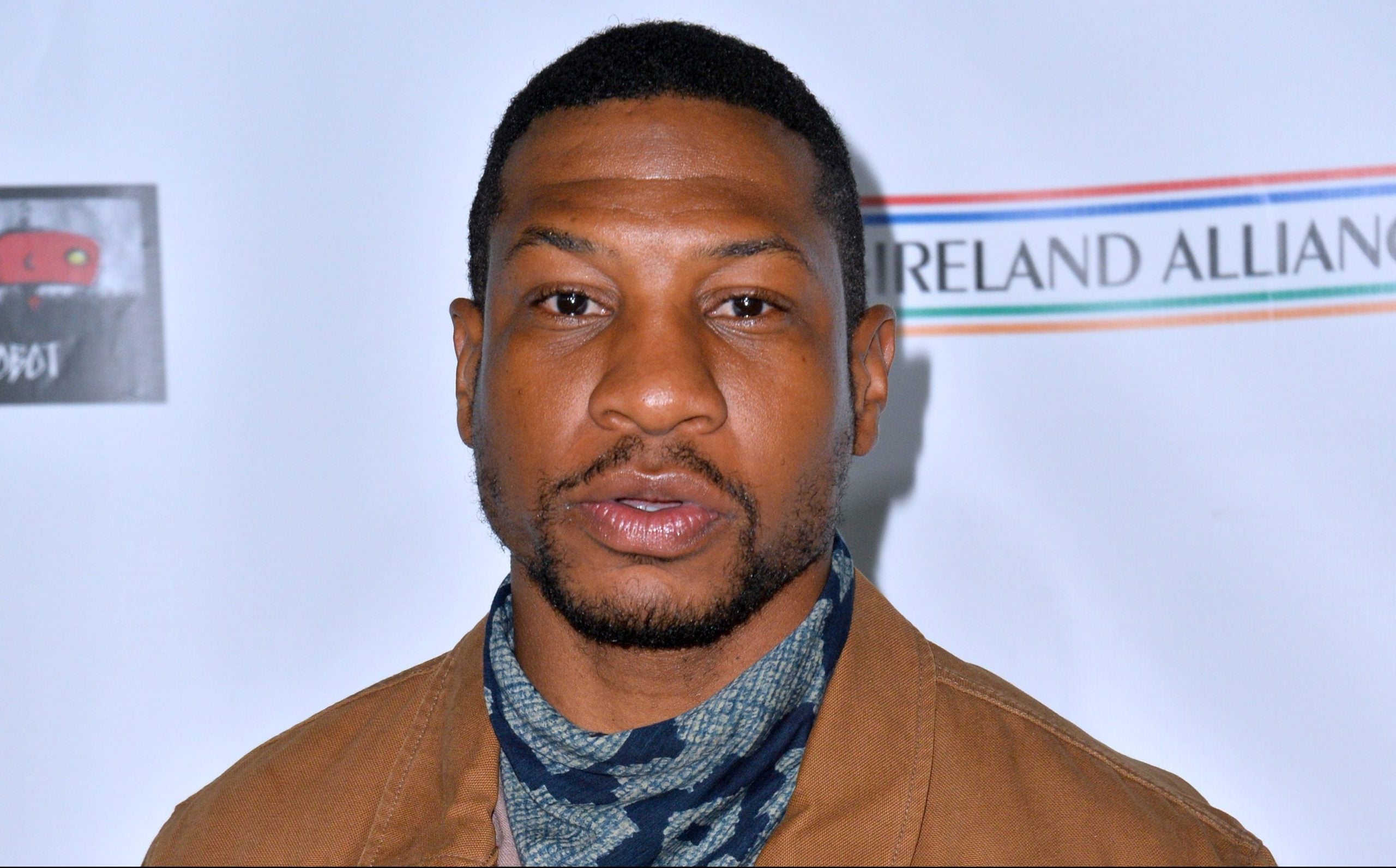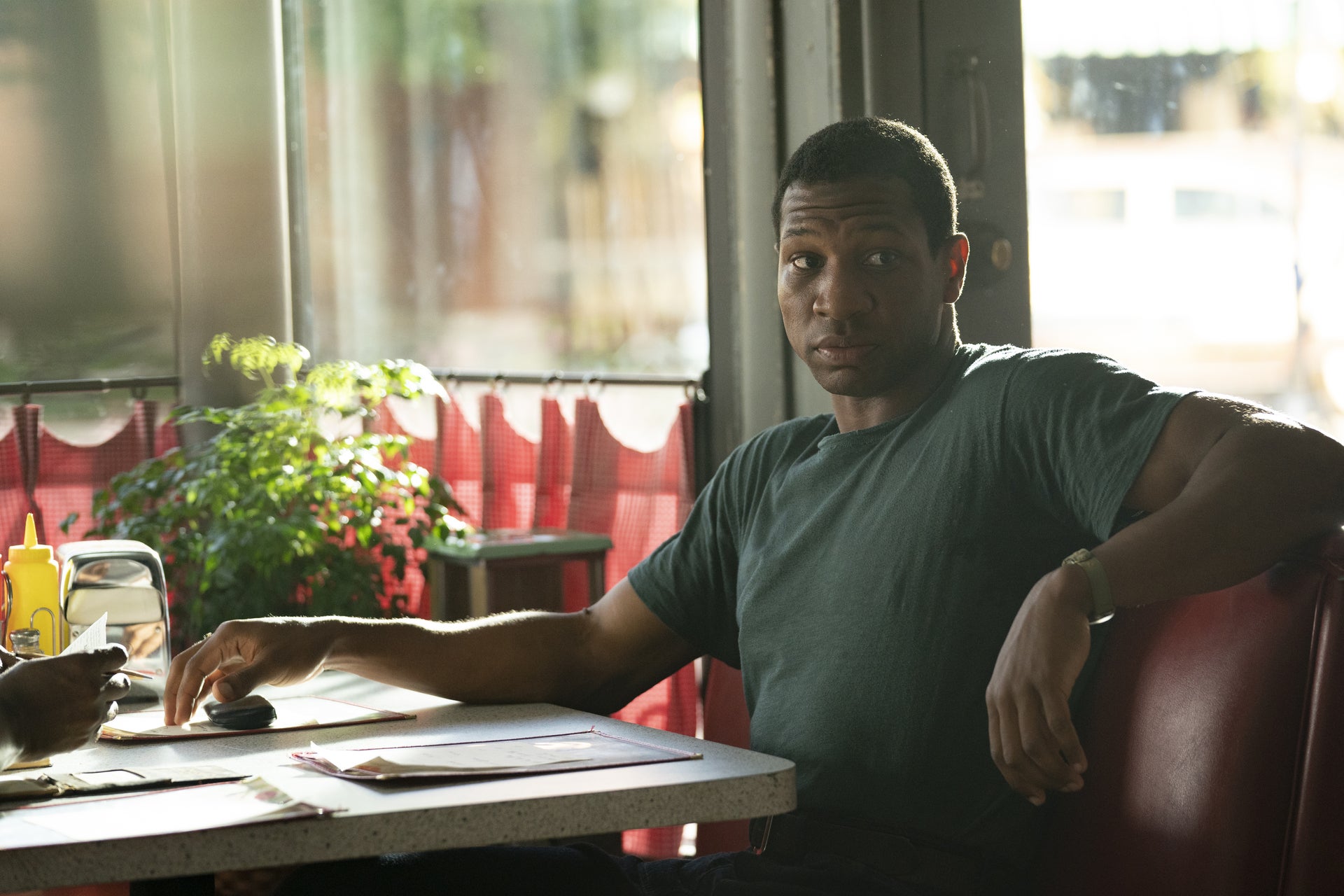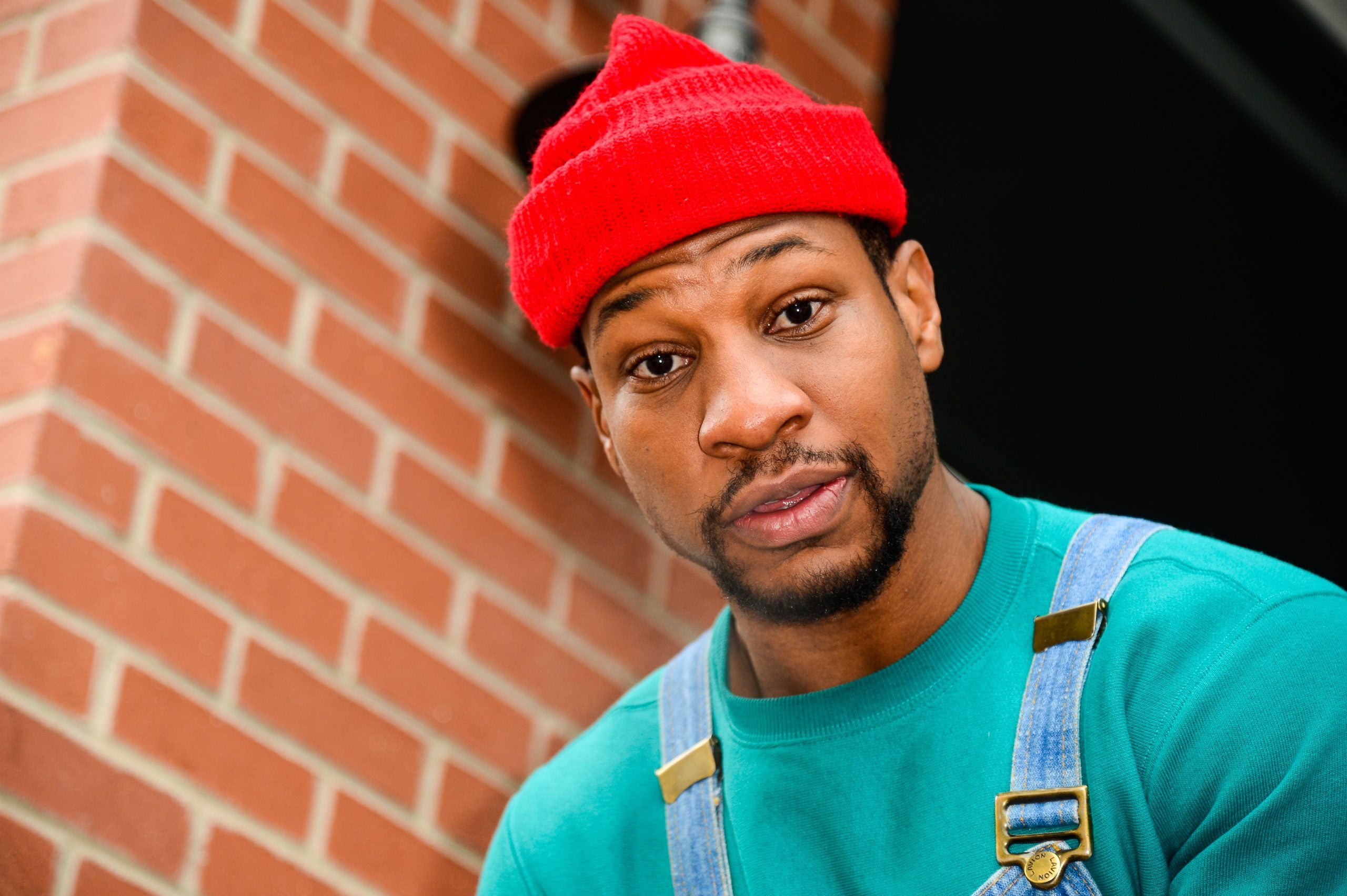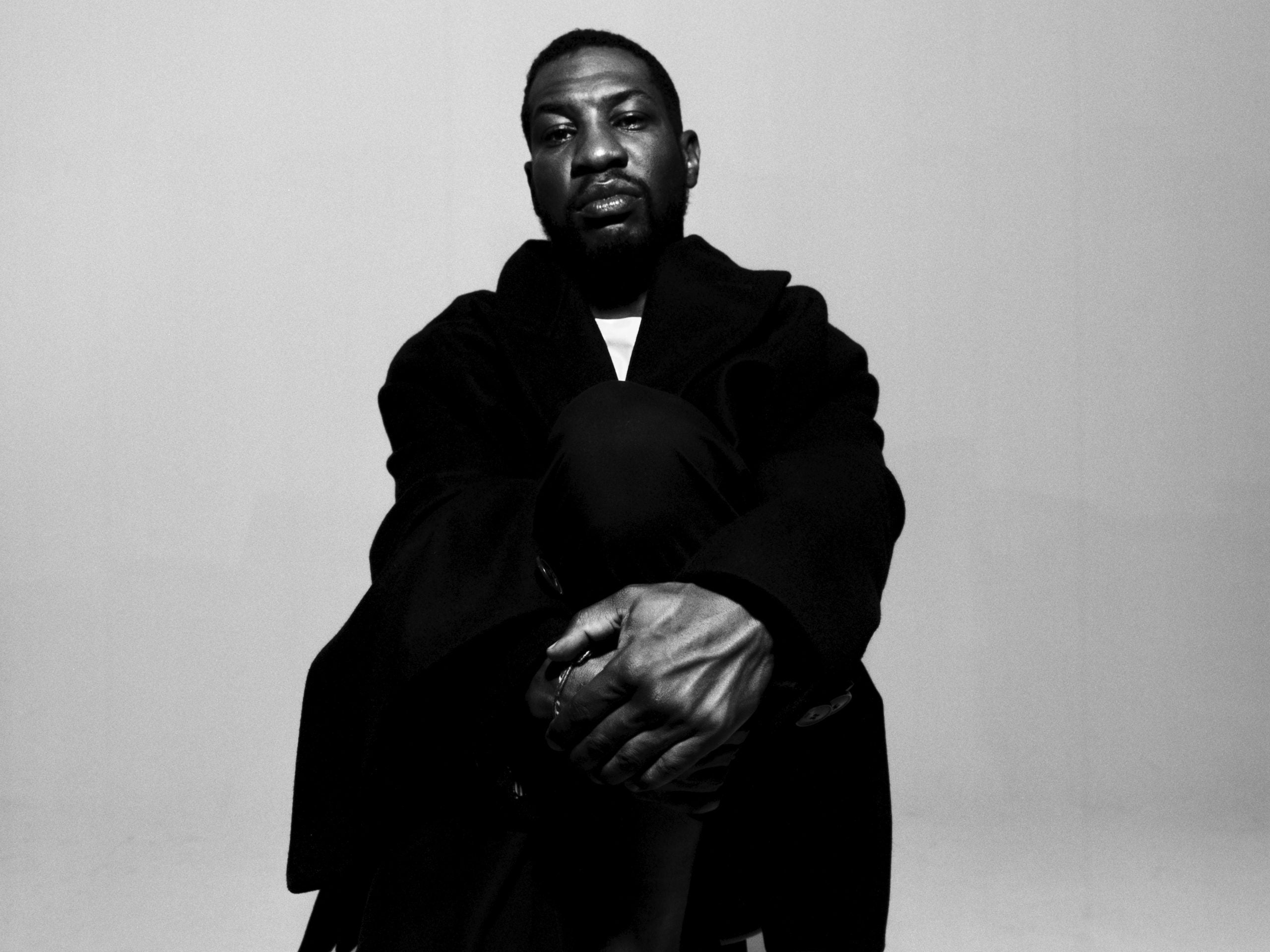
These days, it seems like the only thing people are talking about is Lovecraft Country. And even moreso, its breakout actor Jonathan Majors.
In the HBO series that debuted on Sunday, Majors plays the main character, a Korean War veteran named Atticus Freeman, who embarks on a quest to find his missing father (Michael K. Williams). Taking place in 1950s Jim Crow America, Atticus and Leti (played by Jurnee Smollett) encounter very real racial horrors, police brutality and more “monsters” along the way.
While many may remember Majors from his breakout role in The Last Black Man in San Francisco or more recently Spike Lee’s Da 5 Bloods, it’s Lovecraft Country that’s got everybody wondering, who exactly is Jonathan Majors?

Michael Jordan was his hero growing up.
You’ll be hard pressed to find any Black man who grew up in the 90s that was not a fan of Michael Jordan. And the latest MJ-lovers revival of ESPN’s The Last Dance, sparked the joy in Majors that made him remember what it was like being a fan during the glory days. “When I was a boy, my family members used to call me MJ (my name is Jonathan Michael),” he shares with ESSENCE. “They would call me Michael Jordan. I dreamed about being Michael Jordan, Michael Jordan being my dad at some points, or him helping me play basketball. He [Michael Jordan] was the goat. It was MJ all the way.”
He has a daughter.
Raising a seven-year-old daughter is no easy feat — especially as a Black father trying to preserve her innocence and imagination in a world that often takes that away from people that look like us. “As a father, my job is to protect, and keep things away from interfering with her imagination because that’s her voice,” he shares. “That’s gifted to her. I can teach her how to behave, I can’t teach her how to think or create. That’s something that comes from something far greater than her father. My job is to fight these shoggoths [monsters] that are trying to get to my baby’s imagination, and let her grow and stay free.”

His next role got a cosign from JAY-Z.
If you haven’t seen him onscreen already — the boy can act. And you know his acting chops must be pretty good if JAY-Z is on board. While Lovecraft Country just debuted, the actor already has his next two projects lined up: The Harder They Fall, a film produced for Netflix by JAY-Z, in which he’ll star as a man seeking vengeance against Idris Elba’s character; and the Korean war drama Devotion, in which he and Glen Powell will co-star as two heroic fighter pilots who forge a meaningful friendship.
He doesn’t drive because of the harsh reality of police brutality in America.
DWB (driving, or living while Black, for that matter) is a very real thing in America. And with the realities of police violence and police brutality covered almost daily on the news, it’s not surprising that Majors would want to protect himself from this traumatizing experience. “I do not drive now, for a reason,” he shared with Entertainment Weekly. “You know, I’m a 6-foot Black man, and I’m built the way I’m built. Driving is a very stress-inducing thing for me to do. And so you notice in the first episode, that’s the worst nightmare. That slow chase [with the cop] is probably the most tense thing I had experienced. You see a cop car, it could be a hearse. So that sequence was extremely frightening.”

He is a PK (or pastor’s kid).







As a child attending church near Waco, Texas, Majors was captivated by the preachers performing from the pulpit. The son of a Black female church minister, Majors grew up just outside of Dallas, along with his younger brother, Cameron, and an older sister, Monica. And although Majors was estranged from his father, he told People back in June, the two recently connected amid all of the racial-focused protests following the death of George Floyd. (Majors was often at rallies, protesting himself.) “He said he saw the same protests in the 60s, then in the 90s with Rodney King, and now again,” Majors said, noting that it seemed to both of them like the same thing keeps happening throughout history. “It’s no longer about ‘changing’ or going through a process of change,'” Majors said of police brutality, “it’s about stopping. It’s time to stop. Just stop.”






